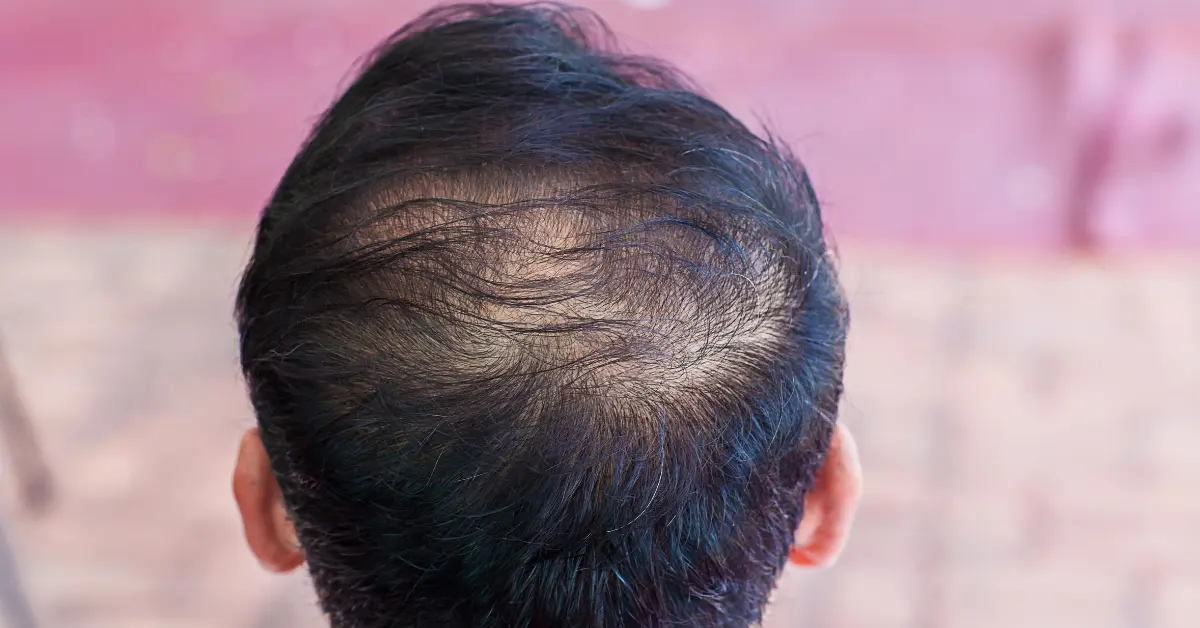A Comprehensive Guide to Lichen Planopilaris
Lichen Planopilaris (LPP) is a condition that affects the scalp and causes scarring or patches of hair loss.
It is a variant of Lichen planus, also known as Follicular lichen planus.
Almost 50% of people suffering from Lichen Planopilaris show symptoms of Lichen Planus.
Lichen Planopilaris may result in permanent hair loss and scarring.
According to NCBI, Lichen Planopilaris is the primary cause of Scarring alopecia, which affects 43% of patients.
It primarily affects women between the ages of forty and sixty.
Continue reading the article to understand more about Lichen Planopilaris.
Types of Lichen planopilaris
There are three types of Lichen Planopilaris
Classic lichen planopilaris: Bald patches on the scalp caused by scars.
Frontal fibrosing alopecia: Scarring and bald spots form near the hairline, along with hair loss in lashes or brows.
Lassueur-Graham-Little-Piccardi syndrome: Scarring, bald spots on the scalp, and hair loss in the armpits and groin. Rough lumps may sometimes appear around hair follicles.
Symptoms of Lichen Planopilaris

The symptoms of LPP can vary from individual to individual.
The vertex and crown region are primarily affected.
Some of the common symptoms of Lichen Planopilaris include
- Patchy hair loss
- Redness on the scalp
- Scalp pain
- Itchiness of the scalp
Causes of Lichen Planopilaris
The exact cause of lichen planopilaris is not known.
Certain suspicions point to autoimmunity as the root cause of this disease.
The body’s immune system reacts abnormally and incorrectly attacks the healthy tissues.
The immune system cells, known as lymphocytes, attack the hair follicles and destroy the stem cells.
This results in hair loss and the formation of a scar.
Diagnosis of Lichen Planopilaris
An expert may physically examine the scalp and the skin.
Additional tests might also be performed for a proper diagnosis, like
- Dermoscopy – The expert might closely examine your skin with the help of a magnifying glass to check if there are any patches of hair loss, inflammation, or scarring.
- Skin Biopsy – A small sample of skin or hair is collected and submitted to a lab for examination.
Treatment
There is no specific cure for Lichen Planopilaris.
Treatment mainly focuses on relieving the symptoms like inflammation and hair loss. They also help in slowing the condition’s progression.
Some treatments include
Antibiotics
Antibiotics help fight bacterial infections and decrease inflammation.
Anti-malarial drugs
Anti-malarial drugs are generally used to treat malaria.
But it is also used to reduce inflammation.
The usual dosage is 200 mg of hydroxychloroquine twice a day, which is frequently regarded as the first line of systemic treatment.
Usually, improvements are visible after six months.
Low-level laser therapy
It is used to decrease inflammation.
Low-level laser treatment (LLLT) uses a pencil-shaped beam of electromagnetic waves with a single frequency and specified wavelength.
It helps promote tissue repair and relieves pain in various soft tissue injuries and disorders.
Platelet-rich plasma

PRP, or Platelet Rich Plasma, is a popular hair regrowth treatment.
In this technique, an injection is used to the root of your hair to transfuse your blood platelets, which are known to have the ability to regenerate/repair cells.
The blood extracted from other areas of your body, such as your arm, is centrifuged to separate platelets from plasma.
The platelets are injected back into the thinning or scanty regions of the scalp.
Minoxidil
Minoxidil is an FDA-approved treatment for hair growth.
It stimulates the blood flow in the scalp and increases hair growth.
Minoxidil is available as a pill, foam, and solution.
| Medicines with Minoxidil | Approx Cost |
|---|---|
| Tugain 5% | $20.54/unit |
| Tugain Solution 10 | $43.65/unit |
| Hair 4u 2% | $6.60/unit |
| Hair 4u 5% | $21.61/unit |
Takeaway
Lichen Planopilaris is an autoimmune condition that can result in patches of hair loss, scarring, and inflammation in the scalp.
It causes permanent and irreversible hair loss.
The main goals of treatment are to lessen symptoms and limit the disease’s progression.
Always consult your doctor if you have excessive hair loss after taking antidepressants to get a proper diagnosis and treatment.
Frequently asked questions
What is Lichen Planopilaris?
Lichen Planopilaris (LPP) is a condition that affects the scalp and causes scarring or patches of hair loss. It is irreversible and causes permanent hair loss. It is a variant of Lichen planus, an inflammatory condition that affects the skin and the mucous membranes.
What triggers Lichen Planopilaris?
The exact reason for Lichen Planopilaris is unknown, but it is seen that the T-cells, a part of the immune system, attack the hair follicles, resulting in hair loss in patches and a red and sensitive scalp.
How do you get rid of Lichen Planopilaris?
There is no specific cure for Lichen Planopilaris, but Antibiotics, Corticosteroids, Retinoids, and anti-malarial medications can help remove Lichen Planopilaris. Low-level laser and PRP therapy can also be used for hair growth.
Can hair regrow after Lichen Planopilaris?
It is very rare for hair to regrow after Lichen Planopilaris. The treatments mainly aim to decrease symptoms like hair, scarring, and inflammation, and some of them include antibiotics and anti-malarial medications along with PRP and low-level laser therapy.
What causes Lichen Planopilaris?
The specific cause for Lichen Planopilaris is not yet known. But, suspicions are on the immune system; it incorrectly attacks the hair follicles leading to hair loss in patches—inflammation and scarring on the scalp.
Is Lichen Planopilaris a form of Lupus?
Lichen Planopilaris and Lupus are different and distinct conditions but might occasionally occur as overlap syndrome. The mixed clinical and histological traits of lichen planopilaris and lupus define overlap syndrome.






